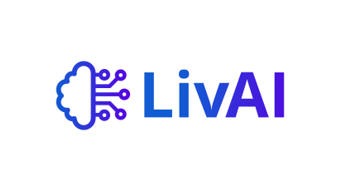- Educators are alert to AI’s academic use, yet struggle with unreliable detection tools.
- Only 25% of educators can confidently distinguish student work from AI-generated content.
- LivAi endorses continuous learning for educators to navigate and embrace technological advances.
Brussels, 21/05/2024. Schools are permitting more student use of AI, but without the proper training to use this tool consciously. Lack of training and consciousness for students and teachers is damaging the relationship between the two sides.
According to “Up in the Air”, a new survey of educators by the Center for Democracy & Technology, 68% of teachers have used an AI detection tool, because AI products are becoming more a part of daily life. Lack of faith in students’ work and the fear that students may try to copy or cheat has caused teachers to use AI detectors as a scare tactic.
59% of educators expressed their belief that students are increasingly utilizing generative AI products for academic purposes. However, the efficacy of AI detection tools remains imperfect, and a false positive from such a tool can have far-reaching implications. These consequences primarily include long-term effects on students’ academic standing or disciplinary records, as well as the potential to create a distance between students and the educational system, ultimately alienating them from the educational system.
Continuing from there, merely a quarter of teachers reported confidence in discerning whether an assignment originates from a student or an AI tool. Notably, half of the educators expressed suspicion regarding the quality of students’ academic work due to the influence of generative AI.
However, caution is necessary when labeling a student as a cheater based solely on AI detection outcomes. These AI detectors, while sophisticated, remain fallible, introducing an inherent margin of error. Moreover, it’s crucial to recognize that AI detectors serve a different purpose than plagiarism detectors; they identify similarities to existing content rather than detecting originality. Therefore, teachers must rely on their personal familiarity with students and their typical work patterns to make informed judgments.
In order to face the new changes that the educational system is going through, the LivAi project advocates for a shift in perspective regarding these tools. Echoing the thinking of other experts, teachers should use and study AI tools actively, instead of banning it. Warning of their inconsistencies, limitations and propensity to give misinformation, as well as instructing on their proper use to safeguard the integrity of students’ learning experiences.
LivAi support to reorganize knowledge and continuous training for all school staff, to create an educational environment capable of welcoming and understanding innovation and progress.
About LivAi
The LivAI project is funded by the Erasmus+ programme and has a budget of €250,000. It aims to provide the necessary strategies and methods to integrate AI and new technologies into education, helping educators and adults in the technological transition.



